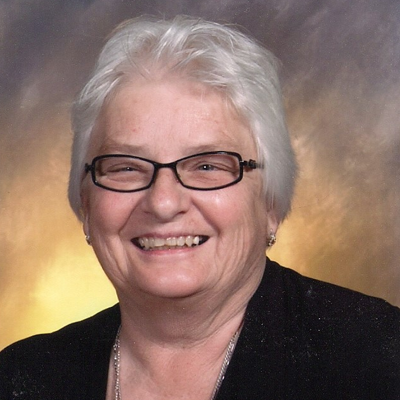
Florence Kurttila, MS, is a colon cancer survivor, human resources executive, and a long-time patient advocate and fundraiser. She is an advocate for SWOG Cancer Research Network and an ASCO member. She is an advisor to Fight Colorectal Cancer, is a former grant reviewer for the Department of Defense, and has served as a legislative ambassador for the American Cancer Society. Ms. Kurttila lives in Citrus Heights, California.
When a patient/research advocate attends a conference as targeted as the Gastrointestinal Cancers Symposium, which was held January 17 to 19 in San Francisco, California, all you need to do is open your mind to the new concepts, ideas, studies, connections, opportunities, and education that you will be exposed to. Meet people, bring business cards, and follow up with those you meet!
This year’s symposium embodied its theme of “Multidisciplinary Treatment, Personalized Care, and Optimal Outcomes.” Presenters, speakers, panelists, attendees, advocates, researchers, doctors, clinicians, and medical professionals came from all over the world to meet and discuss cancers of the gastrointestinal (GI) tract, including cancers of the pancreas, stomach, esophagus, colon, rectum, and anus. The conference covered a wealth of topics, including genetics, counseling, consent, decision making, educational resources, testing impacts on emotional care, finances, and new and improved treatments. With so many topics being discussed at the same time, it can be difficult to choose which sessions to attend.
I found the most impressive part of the symposium to be the wide variety of programs that concentrated on whole-patient care. Whole-patient care is a treatment approach that aims to treat not just the tumor, but rather the “whole patient,” including side effects and mental and emotional problems.
Financial toxicity is another side effect of serious illness. It is a very controversial subject, and it was discussed in many presentations. In addition to being terrible, cancer is also expensive. When one can no longer work because of illness, who will pay for transportation, housing, medications, lost income, and more? Where does a person get financial help for chemotherapy? How do people who are uninsured or underinsured get cancer treatment?
Some people with cancer have to choose between feeding their family or receiving a cancer treatment. People have lost savings or their homes because of the financial strain of cancer. Others also have stopped cancer treatments because they do not have the money to pay for it. There are organizations and resources that can help people pay for their treatment costs. Patient advocacy groups and drug companies may also help. People who are affected by financial toxicity should not be afraid to ask for help and to share their concerns, because there may be support and resources available.
I was really struck by a presentation on palliative care and palliative treatments. The best way to describe it is by example. Palliative care, also called supportive care, addresses the symptoms of very serious illnesses. It is intended to relieve stress and/or symptoms and improve a person’s quality of life. Palliative care can be used at any stage of an illness. For cancer, these symptoms may include physical problems, like nausea, shortness of breath, sleep issues, and more. Palliative treatments could include medicine, physical therapy, integrative medicine, and others. For emotional and spiritual symptoms, palliative treatments may include counseling, family group meetings, referrals to mental health professionals, and spiritual support. Palliative treatment and care are provided by a multidisciplinary team of medical professionals. It is not necessarily a cure for the disease but can provide relief of the symptoms.
It is important to note that palliative care is not the same as hospice care, which is end-of-life care. When does a family sit down and talk about stopping active treatment? Whose decision is this? Does the family have the right to insist that a patient try every possible treatment, even though the side effects may reduce quality of life? People with cancer can avoid these types of situations by putting their wishes down in writing and selecting a person they know will carry them out. This should be discussed with the caregiver, family, and health care team earlier in the treatment plan to avoid stressful situations that may arise later. Further patient education about this situation is so necessary.
Much of this year’s research concentrated on radiation therapy and chemotherapy. There were also studies that described using new drugs and treatment combinations. I enjoy hearing about how certain clinical trials are proceeding, whether they are successful or not or even if they had to be stopped because the study did not help the patient as expected. Sometimes what we think will be a good way of improving cancer care does not prove itself with results in a clinical trial. It is good to hear results from all studies, not just the successful ones, so we can have better understanding of what does and does not work.
In fact, I believe that having clinical trials, presentations on new treatments at conferences like this, discussing communication skills, and developing data-sharing tools like ASCO’s CancerLinQ are all ways that help us in the oncology community to listen to and talk with people with cancer. Then, their voices can be shared with our health care teams and we can further improve care for the whole patient. The important thing to remember is that for an advocate, learning and asking questions is vital to our success and sharing the patient voice. This year’s Gastrointestinal Cancers Symposium gave many attendees great opportunities to network and seek new information. It was great!
